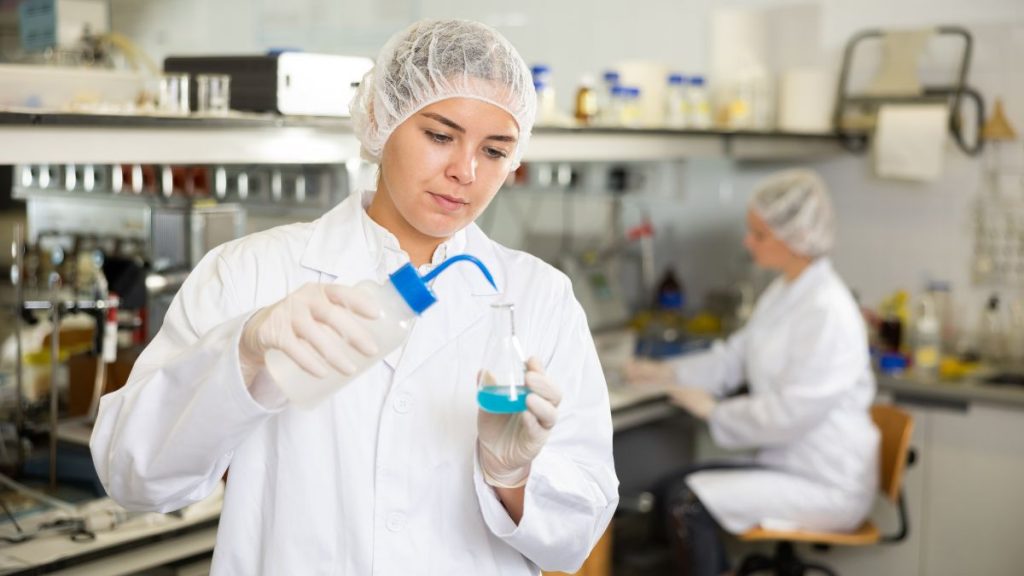Lab technicians work in various settings like hospitals, schools, and research facilities, where they carry out tests, maintain equipment, and assist with experiments. They play a vital role in scientific research, education, and industry by ensuring labs run smoothly and experiments are conducted properly.
If you love science, have great attention to detail, and enjoy hands-on work, becoming a lab technician could be an excellent career choice for you.
What skills do I need as a lab technician?
- Strong attention to detail and organisation
- Good hand-eye coordination
- Excellent numeracy and analytical skills
- Ability to follow procedures precisely
- Great teamwork and communication
- Problem-solving abilities
- Computer and technical skills
- Safety consciousness
What does the job involve?
- Setting up and conducting experiments
- Collecting and testing samples
- Recording and analysing data
- Maintaining laboratory equipment
- Following safety protocols
- Preparing reports and documentation
- Managing lab supplies and inventory
- Supporting researchers and scientists
What industries do lab technicians typically work in?
- Education and Training
- Professional, Scientific & Technical Services
- Manufacturing
What Career Cluster do lab technicians belong to?
Lab technicians are primarily part of the Maker Cluster because they work hands-on with equipment and materials. They also share some qualities with Innovators (helping develop new processes) and Guardians (maintaining safety standards).
What kind of lifestyle can I expect?
Most lab technicians work full-time, averaging about 43 hours per week, though part-time opportunities are available (about 26% work part-time). The work is usually done on-site in laboratories, and you may need to work flexible hours depending on experiments or research needs.
Most lab technicians can expect to earn an average salary throughout their career. Future growth is moderate overall, with strong opportunities in medical and research sectors.
How to become a lab technician
There are several pathways to becoming a lab technician, but most involve some form of formal qualification:
- Complete high school, focusing on sciences and mathematics
- Choose one of these education paths:
- A vocational qualification in Laboratory Skills/Techniques
- A Bachelor’s degree in relevant science field
- A traineeship or apprenticeship combining work and study
- Obtain any necessary licenses or certifications
- Gain experience and consider specialising in a particular field
What can I do right now to work towards this career?
If you’re in high school and interested in becoming a lab technician, here are some steps you can take:
- Focus on science subjects, especially chemistry and biology
- Work on your technology skills
- Practice being organised and methodical
- Join science clubs or participate in science fairs
Where can I find more information?
- Science Education Technicians Australia
- Science Technicians’ Association of New Zealand
- The Science Council (UK)
- Medical Laboratory Scientists Association (Ireland)
- The American Society for Clinical Laboratory Science
- Canadian Society for Medical Laboratory Science
Similar careers to lab technician
- Pathology Collector
- Forensic Scientist
- Medical Laboratory Technician
- Dental Technician
- Biologist
- Chemist
- Sonographer
- Radiographer
Find out more about alternative careers on our Job Spotlights page.


